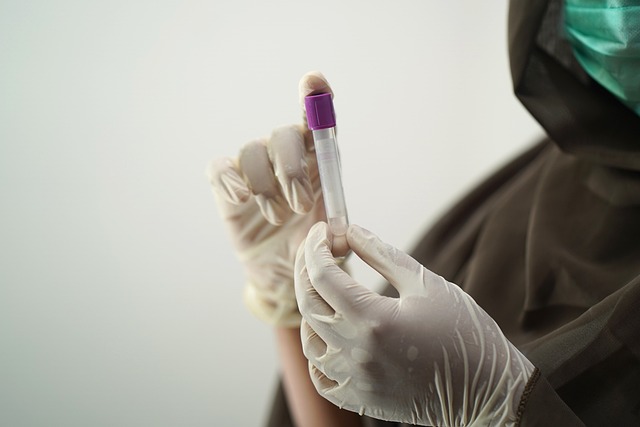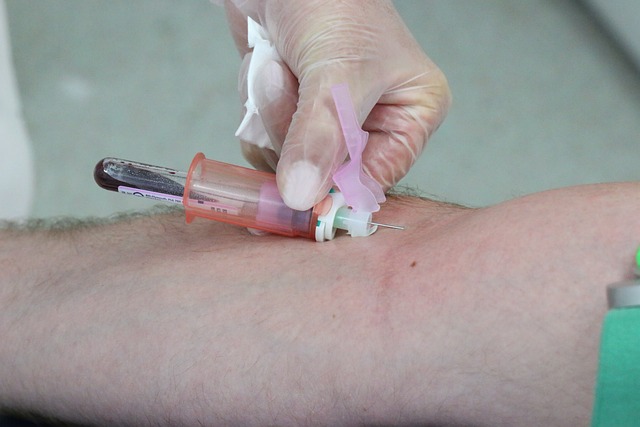The UK Ferritin Blood Test is a vital diagnostic tool for assessing and managing reproductive health issues, particularly those related to iron deficiency. It accurately measures ferritin levels, crucial for understanding potential anemia and its impact on fertility. This test is non-invasive and provides insights into iron stores, which are essential for maintaining regular menstrual cycles and supporting ovulation. Healthcare providers use comprehensive hormone analyses, including measurements of FSH, LH, estrogen, and progesterone, alongside the UK Ferritin Blood Test to diagnose fertility issues or reproductive disorders. These assessments enable tailored treatments that improve patient outcomes. The test is not only a diagnostic tool but also a monitoring one for tracking treatment progression over time. Its integration with hormone analysis has significantly improved the accuracy of diagnoses and the effectiveness of interventions within the UK's healthcare system, reflecting the country's commitment to evidence-based medicine in reproductive care. Regular ferritin testing is key to optimizing treatment plans and ensuring a stable and healthy reproductive environment for individuals facing reproductive challenges. The UK Ferritin Blood Test stands out as an indispensable part of a comprehensive care strategy, contributing to the advancement of reproductive healthcare delivery.
Navigating reproductive health challenges often necessitates precise medical interventions, pivotal among which is hormone analysis. This article elucidates the significance of such diagnostic measures, particularly focusing on the UK Ferritin Blood Test as a cornerstone tool in addressing and diagnosing reproductive issues. We explore how this test integrates with broader clinical assessments to enhance the efficacy of reproductive care within the UK’s healthcare framework. Join us as we delve into the critical intersection of endocrinology and gynecology, where accurate hormone analysis plays a pivotal role in patient well-being.
- Understanding the Role of Hormone Analysis in Reproductive Health
- The UK Ferritin Blood Test: A Key Diagnostic Tool for Reproductive Issues
- Integrating Hormone Analysis with Clinical Assessments for Effective Reproductive Care in the UK
Understanding the Role of Hormone Analysis in Reproductive Health

Hormone analysis plays a pivotal role in the realm of reproductive health, offering insights into the complex interplay of hormones that govern various physiological processes. In the UK, one of the key diagnostic tools is the Ferritin Blood Test, which measures the level of ferritin—a protein indicator of iron stores—in the blood. This test is particularly relevant for assessing reproductive health as iron deficiency can lead to anemia, a condition that can affect fertility and menstrual regularity. Understanding ferritin levels helps healthcare providers diagnose and manage conditions such as heavy menstrual bleeding or other forms of iron-deficiency anemia, which are prevalent issues among women of reproductive age.
Furthermore, a comprehensive hormone analysis encompasses a range of tests that evaluate hormones like follicle-stimulating hormone (FSH), luteinizing hormone (LH), estrogen, and progesterone. These hormones are instrumental in the ovulation process and maintaining the menstrual cycle. By analyzing these hormone levels, medical professionals can identify disruptions or imbalances that may be causing fertility issues or reproductive disorders. The UK Ferritin Blood Test, when used as part of a broader hormonal workup, empowers healthcare providers to make informed decisions regarding treatment plans, thereby enhancing the chances of successful outcomes for individuals seeking to understand and address their reproductive health concerns.
The UK Ferritin Blood Test: A Key Diagnostic Tool for Reproductive Issues

The UK Ferritin Blood Test plays a pivotal role in diagnosing and managing reproductive issues, particularly those related to iron deficiency and its impact on fertility. This test measures the levels of ferritin, a protein that stores iron in the body, providing insight into iron status and potential anemia, which can affect ovulation and pregnancy outcomes. For women experiencing difficulties with conception or irregular menstrual cycles, understanding ferritin levels is crucial, as low iron can lead to decreased fertility. The UK Ferritin Blood Test offers a non-invasive method for healthcare providers to assess a woman’s iron stores and determine if supplementation or dietary changes are necessary to support optimal reproductive health. It is a valuable addition to the diagnostic toolkit, enabling timely interventions that can significantly improve chances of conception and address underlying fertility concerns.
Furthermore, the UK Ferritin Blood Test is not only limited to initial diagnoses; it is also instrumental in monitoring treatments and ensuring that reproductive health issues are being effectively managed over time. Regular ferritin testing can help track the progress of iron supplementation and adjust treatment plans as needed, which is essential for maintaining a stable and healthy reproductive environment. The reliability and accessibility of this test make it an indispensable component in the comprehensive care approach for individuals facing reproductive challenges.
Integrating Hormone Analysis with Clinical Assessments for Effective Reproductive Care in the UK

In the UK, integrating hormone analysis with clinical assessments has become a cornerstone in the pursuit of effective reproductive care. The UK Ferritin Blood Test, specifically, plays a pivotal role in this process. This test measures ferritin levels, which are indicative of iron stores in the body and are crucial for optimal hormone function. Reproductive issues such as irregular menstrual cycles or infertility can often be traced back to hormonal imbalances that may be influenced by nutritional deficiencies, including iron deficiency anemia. By incorporating this test into the diagnostic toolkit, healthcare providers in the UK can better pinpoint underlying causes of reproductive health concerns and tailor treatments accordingly. This approach not only improves patient outcomes but also streamlines the process of diagnosis and treatment, ensuring that individuals receive the most appropriate care for their specific reproductive needs.
The synergy between hormone analysis and clinical evaluations is further enhanced by the UK’s commitment to evidence-based medicine and continuous improvement in healthcare delivery. The integration of such tests as the UK Ferritin Blood Test allows for a more holistic understanding of a patient’s health status, taking into account both hormonal and nutritional factors that could impact reproductive function. This comprehensive approach facilitates early intervention and can lead to more successful treatment outcomes, underscoring the importance of such tests in the broader context of reproductive healthcare within the UK. Healthcare professionals are equipped with advanced analytical tools, enabling them to offer nuanced diagnoses and personalized treatment plans that address the complex interplay of hormones and other health parameters.
In conclusion, hormone analysis, particularly through the UK Ferritin Blood Test, plays a pivotal role in addressing and diagnosing reproductive issues. This comprehensive assessment integrates seamlessly with clinical evaluations to provide healthcare professionals with vital insights into patients’ hormonal statuses. By understanding these dynamics, doctors in the UK can tailor treatments more effectively, improving health outcomes for individuals facing fertility challenges or experiencing reproductive health concerns. The integration of such diagnostic tools underscores the importance of advanced endocrine testing as a cornerstone of modern reproductive care within the UK healthcare system.
